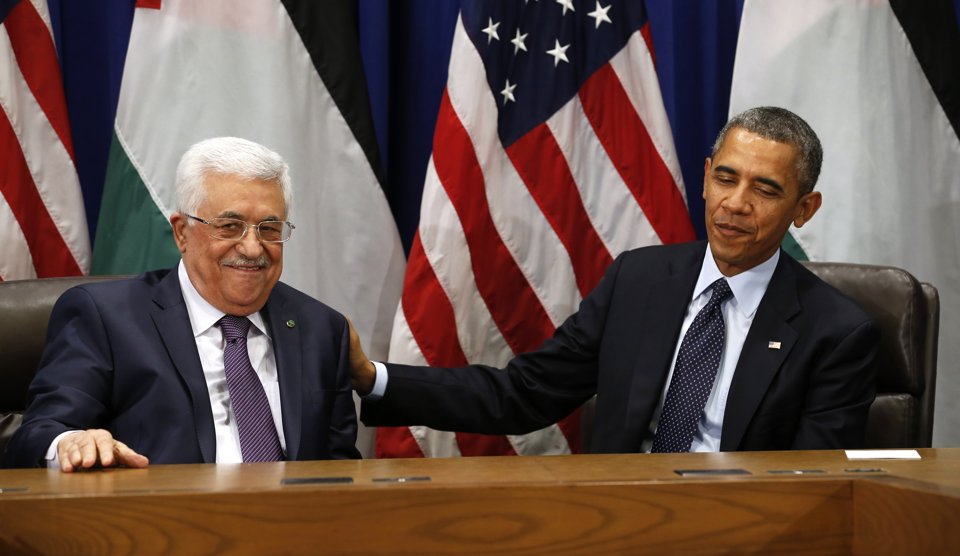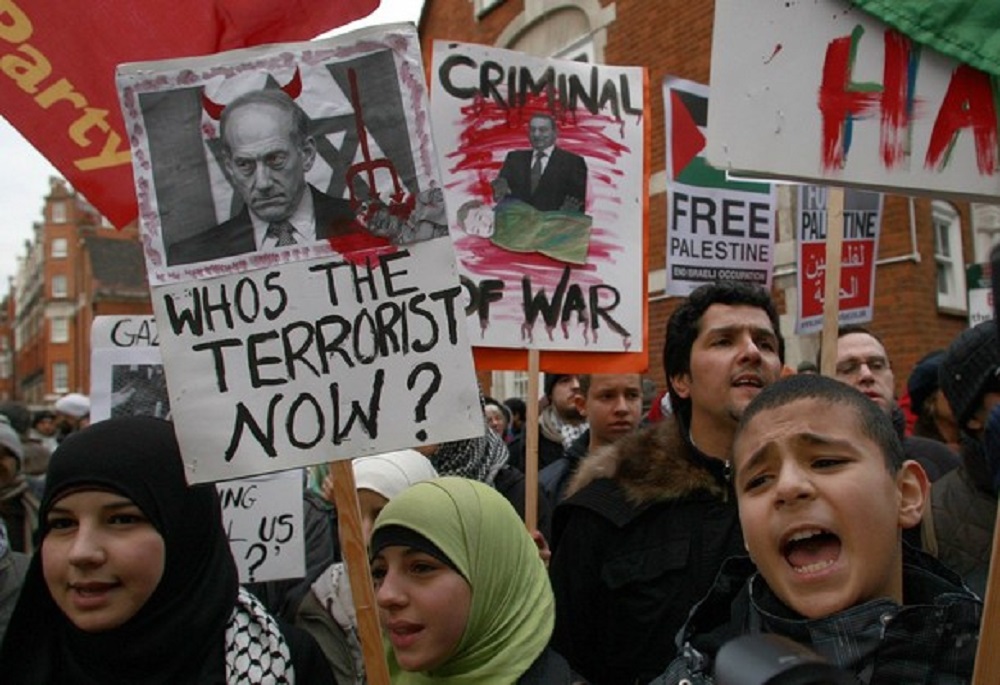The Coming War
On November 23, 2002, a Hamas bulletin proclaimed that Allah required good Muslims to obey the words of its then spiritual leader, Sheik Ahmed Yassin: “We will knock on the doors of heaven with the skulls of the Jews,” he said. It is of more than passing concern that in the video released after her attack on January 13, 2004, Hamas suicide bomber, Reem al-Reyashi, 22, repeated Sheik Yassin’s words almost verbatim: ”It was always my wish to turn my body into deadly shrapnel against the Zionists and to knock on the doors of heaven with the skulls of the Zionists.” Reyashi left behind a son aged three and a year-old daughter. She also murdered four Israelis who came to her assistance when she feigned sickness. The same culture that produced Reem al-Reyashi and an Islamic version of Mickey Mouse promoting martyrdom for children now rules Gaza, is extending its influence onto the West Bank and is firing missiles on Israel’s civilian population centers. These missiles will soon reach Ashkelon and Tel Aviv. To put it bluntly, Hamas is living on borrowed time.
Saad Eddin Ibrahim, a liberal Egyptian intellectual, once wrote: “Wars, bad as they are, break empires, break dictators, and leave the ground clear for new systems to be created.” War is nasty business, but it has the dramatic effect of breaking new ground for a better future. It is neither pleasant nor desirable, but in an environment where suicide bombers are trained to hate Jews and are revered as “holy men,” war becomes necessary and the total defeat of the enemy and the system that produced it becomes a matter of national survival.
Marwan Barghouti (now in Israeli custody), the military architect of the second intifada against Israel has stated: “I’m ready to make peace with Israel, but only after we’ve militarily defeated it.” In fact, the exact reverse is about to occur. Hamas has now opened Pandora’s Box and released Islamic demons that it can no longer contain. It is about to ignite a fire that will consume it and destroy the Islamic presence on the West Bank and Gaza totally and completely.
But what exactly does this mean in military terms? How does one define victory and defeat in such a conflict and against such an adversary?
For this, we need to look no further than the American civil war experience. “No terms except an unconditional and immediate surrender can be accepted,” General Ulysses S. Grant famously retorted to requests for conditions from the trapped Confederate defenders of Fort Donelson in February 1862. Grant’s bluntness was repeated in Lincoln’s tough policy toward Lee’s troops after their surrender at Appomattox three years later. The result – the Confederacy was forced not simply to admit military defeat, but to accept the humiliation of being required to end slavery, to accept any and all terms of defeat without conditions, and, perhaps most importantly, to forego their dream of a separate confederate state. That laid the basis for the reconstruction of the South. As military historian Victor Davis Hanson of Stanford’s Hoover Institute noted in a Washington Post editorial:
“(Historically), utter surrender was seen as the critical first step in dismantling our enemies’ infrastructure of terror. Only by eradicating the reasons that we had gone to war in the first place – whether slavery, fascism, Nazism or Japanese militarism – could real peace follow. In contrast, armistices, peace processes and negotiations are no substitute for unqualified surrender but often can achieve the opposite intent of prolonging the torture chambers and death squads by reviving and legitimizing a terminal regime. Once the verdict of the battlefield ensures the specter of victory, the wisest policy is always to demand, not ask for, capitulation. That alone brings forth the truth about concentration camps, secret police and the bureaucracy of terror. The death and imprisonment of the culpable parties involved saves lives and offers the hope of a humane reconstruction…”
Thus, victory has certain clearly defined characteristics, and these characteristics provide some historical insight into the final resolution of this conflict. ‘Victory,’ in traditional military terms, consists of imposing one’s will unconditionally upon an enemy. Alternatively, ‘defeat’ consists of the losing side accepting the futility of its cause and acquiescing to the terms of the victors. That point is reached when it is rendered incapable of continuing the struggle – when its will to fight (psychologically) and its ability to wage war (militarily) are completely and utterly destroyed.
The history of the 20th century has shown that only overwhelming and absolute power resulting in control over both the air and territory of the enemy has achieved the kind of ‘total victory’ to which Ibrahim refers. The world witnessed it with the fall of Nazi Germany and the Empire of Japan. These defeated nations were totally and unconditionally vanquished (both militarily and psychologically). The underlying principles of the regimes were discredited. The infrastructures of both states were dismantled. Their capacity to wage further war was eliminated; their weapons were seized; their fascist militias were hunted down and destroyed; foreign aid poured into devastated Europe under the Marshall Plan; human and financial resources were channeled away from “guns” and back into ‘butter’ in the form of massive social and economic programs and services; a new independent judiciary was installed; new laws were promulgated along with new constitutions; new economic plans were proposed; those responsible for igniting the conflict were removed from power, tried, imprisoned and/or executed; a new moderate, progressive and indigenous leadership was installed; and a new educational system was instituted – an absolutely critical step in the complete dismantling of both the culture of Aryan supremacy in Germany and the culture of death that has so permeated Palestinian society today.
But to understand the concept of “victory,” one must also understand what victory is not. Neither the Korean War (1953), nor the Iraq-Iran war (1988), nor the first Gulf War (1991), nor the current war in Iraq for that matter constituted “victory” in the traditional sense of the term since the enemy was never vanquished. No fundamental regime and societal change occurred. And despite the fact that the Arabs may have lost numerous wars with Israel (1948-1949, 1956, 1967, 1970, 1973, 1982, 2006), the Middle East conflict has never been resolved because the warring Arab nations have never been totally and unconditionally (that is: psychologically and militarily) vanquished by Israel, nor have they ever given up the dream of annihilating it. If this read on history is correct, a true Middle East peace may be unachievable since the region is too vast and the Arab states too scattered.
In the case of Hamas, however, the inevitable Israeli onslaught into their territories may usher in a societal change for the Palestinians provided it continues until the Palestinians recognize that all is lost; that their dream of destroying Israel and replacing it with an Islamic State is futile, and that there is no other alternative but to accept defeat as the will of Allah. That will occur when the Palestinians recognize that an end to the horrors of war will yield them greater dividends than allowing it to continue. Today, the Palestinians assume that things couldn�t possibly get worse, but in a total war environment designed to destroy Islamic influence in the territories, Israel has the capacity to convince them otherwise – that things can and will become immeasurably worse. The coming war must not be another short-term Israeli incursion. It must involve a far lengthier occupation designed to ensure that the Islamic swamp that has harvested the lives of thousands of Palestinians and Israelis and sown the seeds of future discord in the minds of their children is drained.
In her video, made only days before her suicide attack, Reem al-Reyashi, in military fatigues and with a grenade launcher before her declared: ”G-d gave me the ability to be a mother of two children who I love so,” she said. ”But my wish to meet G-d in paradise is greater, so I decided to be a martyr for the sake of my people. I am convinced G-d will help and take care of my children.”
In a strange twist of fate, an Israeli victory will free the Palestinian people from this death cult and extend to the Palestinians the same opportunities now found in Eastern Europe (which has since been freed of the burdens imposed by totalitarian communism). But this freedom can and will only be purchased when the Palestinian culture of death has been extinguished. Hamas cannot change its nature any more than a leopard its spots. The day Hamas ascended to power in the Palestinian territories marked the beginning of the end Islamic rule on the West Bank and Gaza Strip.
The U.S. administration is wrong in its belief that there is �no military solution� to the problems in Gaza and West Bank. A military solution is the only solution that will stop the spread of Islamic fascism in the territories provided that the defeat of Hamas is total, unconditional and leads to fundamental changes in both the regime and the society over which it rules. In a strange twist of fate, it is the Israelis who will guarantee a better Palestinian tomorrow.




